EPAS Webinar tackles human rights of trans and intersex athletes
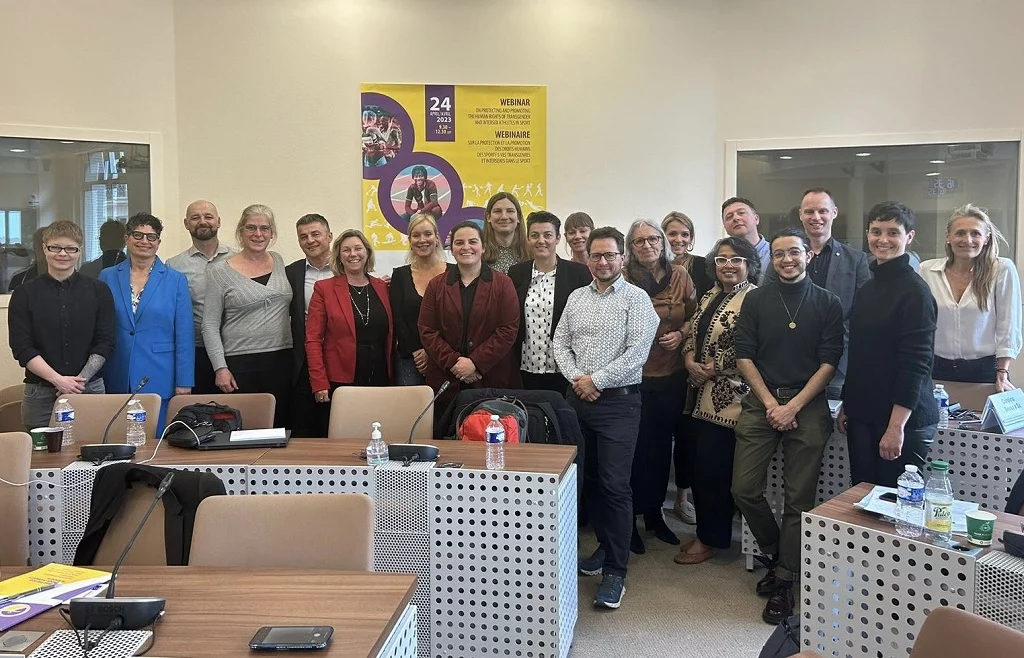
On April 24, a webinar on protecting and promoting the human rights of transgender and intersex athletes in sports was held in Paris and online, organised by the Council of Europe’s Enlarged Partial Agreement on Sport (EPAS).
This public webinar presented an update since the 2021 Diversity Conference, including recommendations and conclusions, within Council of Europe bodies such as EPAS, the Sports Division, and the SOGI Unit. The webinar was hybrid, allowing participants to join in person or remotely, and had interpretations in both French and English.

The webinar began with a welcoming speech from the Head of the Children’s Rights and Sports Values Department, Irena Guidikova, who made important remarks about the importance of addressing equality and rights also in sport. The context and setting of the webinar were given by Cassandra Mactavish, Senior Project Officer and Coordinator EPAS Consultative Committee Coordinator, and Hugh Torrance, Co-President of the European Gay & Lesbian Sports Federation (EGLSF).
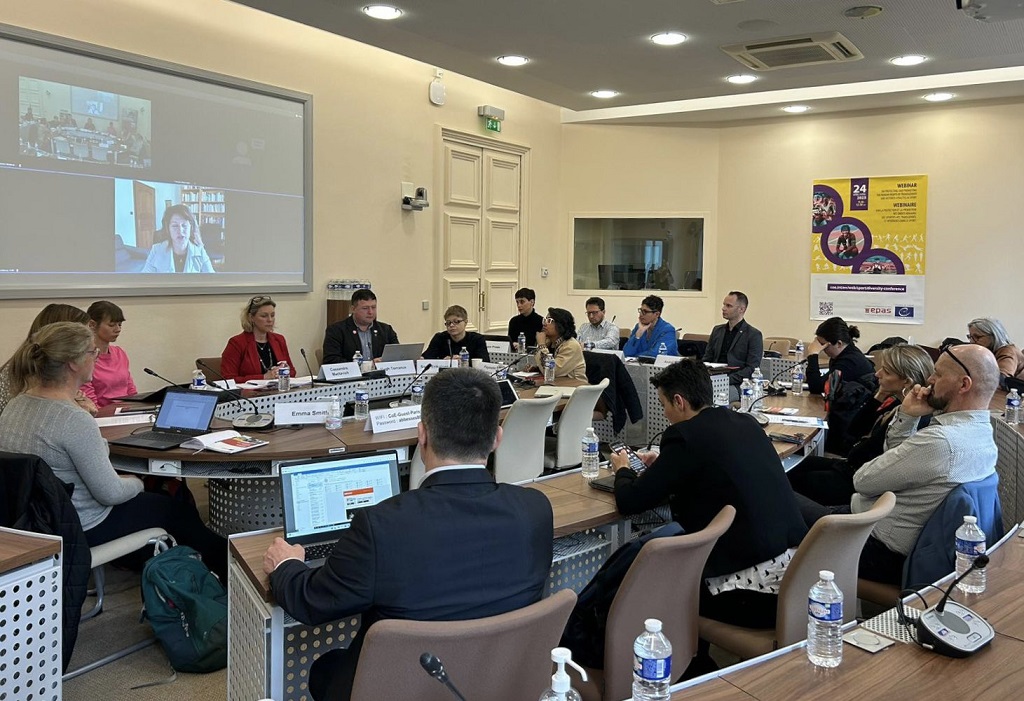
Following the welcoming speeches, the first panel moderated by Dr Sone Erikainen discussed combating discrimination against transgender and intersex athletes, presenting some key global initiatives. Speakers explored taking stock of both the progress accomplished and the obstacles that have been encountered. The first speaker was Madeleine Pape, an inclusion specialist at the International Olympic Committee (IOC), who presented the IOC Framework on Fairness, Inclusion and Non-discrimination on the basis of gender identity and sex variations.
Gabriela Matei, a Senior Project Officer in Sport Division at the Council of Europe, spoke on the work of the COE and projects on combating and preventing hate speech in sports.
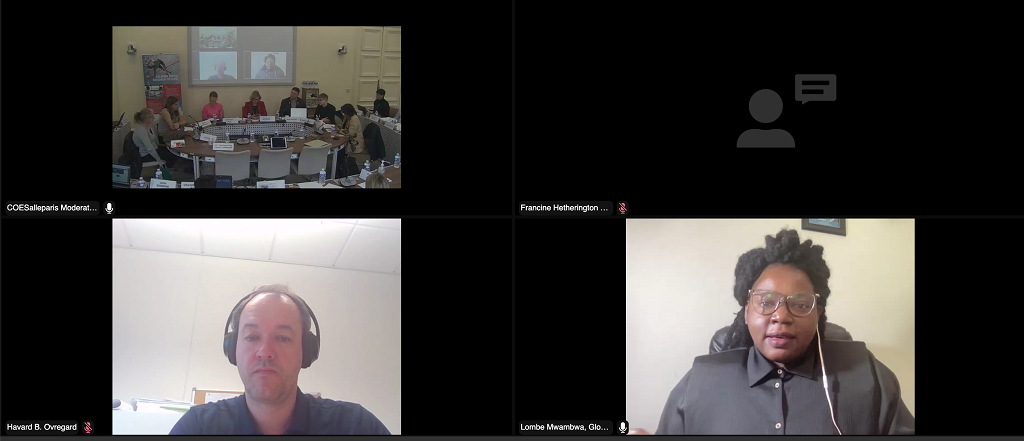
Lombe Mwambwa addressed the Global Observatory on Gender Equality and Sport's (GO) key priorities. Followed by Payoshni Mitra, an Athletes' Rights Advocate, who highlighted the rights of intersex athletes in sports and how regulations can openly exclude athletes as there is no systemic support for these athletes. Then Natalie Washington, a football player and leader of the Football Vs Transphobia Campaign discussed the main harms and challenges of trans athletes, including abuse, harassment and the consequences.
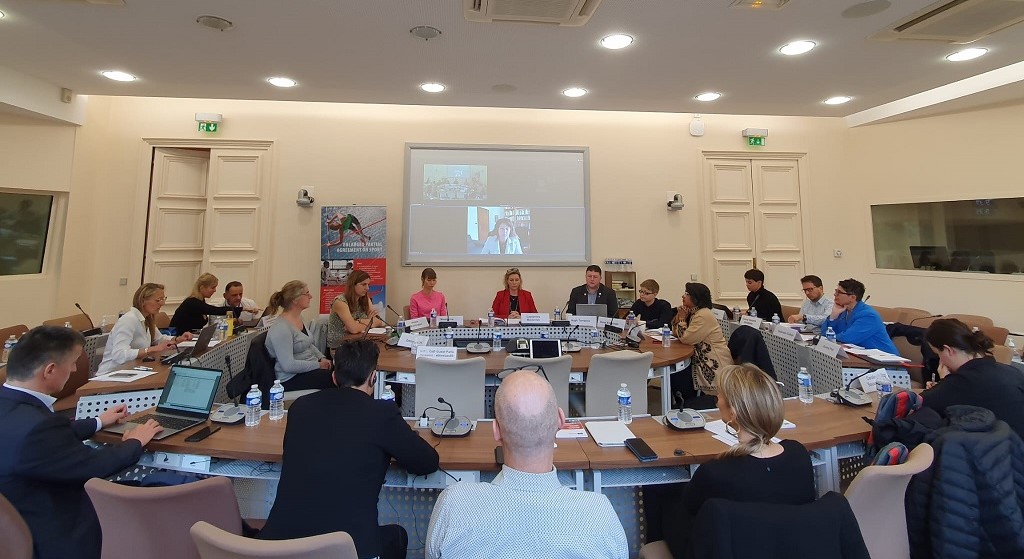
The second panel focused on ensuring greater educational awareness of the human rights of transgender and intersex athletes in sports and looking into how this has been achieved elsewhere, which was moderated by Andrej Pisl from the European University Sports Association (EUSA).
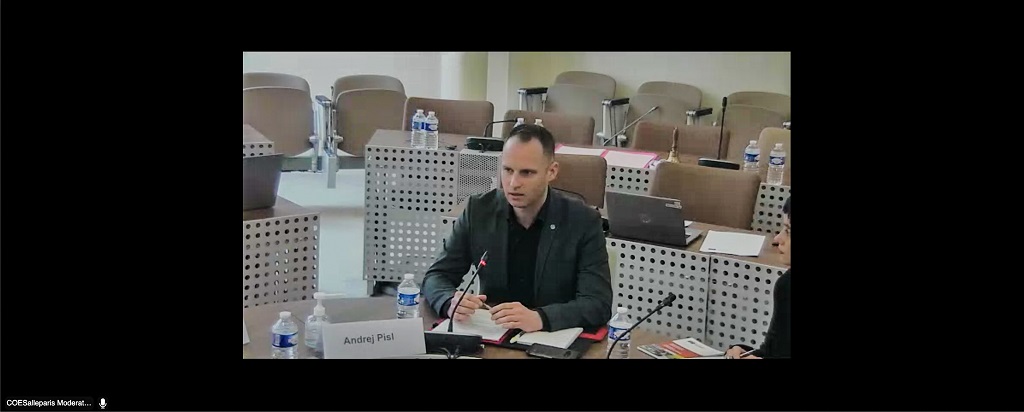
Speakers at this panel included Hugh Torrance, the Co-President of the EGLSF, who talked about the policies and practises for inclusion in sports. The second speaker was Gabriella Calleja, Chair of the Council of Europe’s Sexual Orientation and Gender Identity Unit (SOGI), who discussed the work of the SOGI Unit, and the recommendations provided by the sporting bodies in promoting awareness of athletes faced with this discrimination. Thays Prado, a Gender Advisor at the Centre for Sport and Human Rights, spoke about educational tools like the Global Sport and Human Rights Academy - a platform for human rights education in sports, and other tools and mechanisms that address diversity and inclusion policies, as well as accountability of organisations.
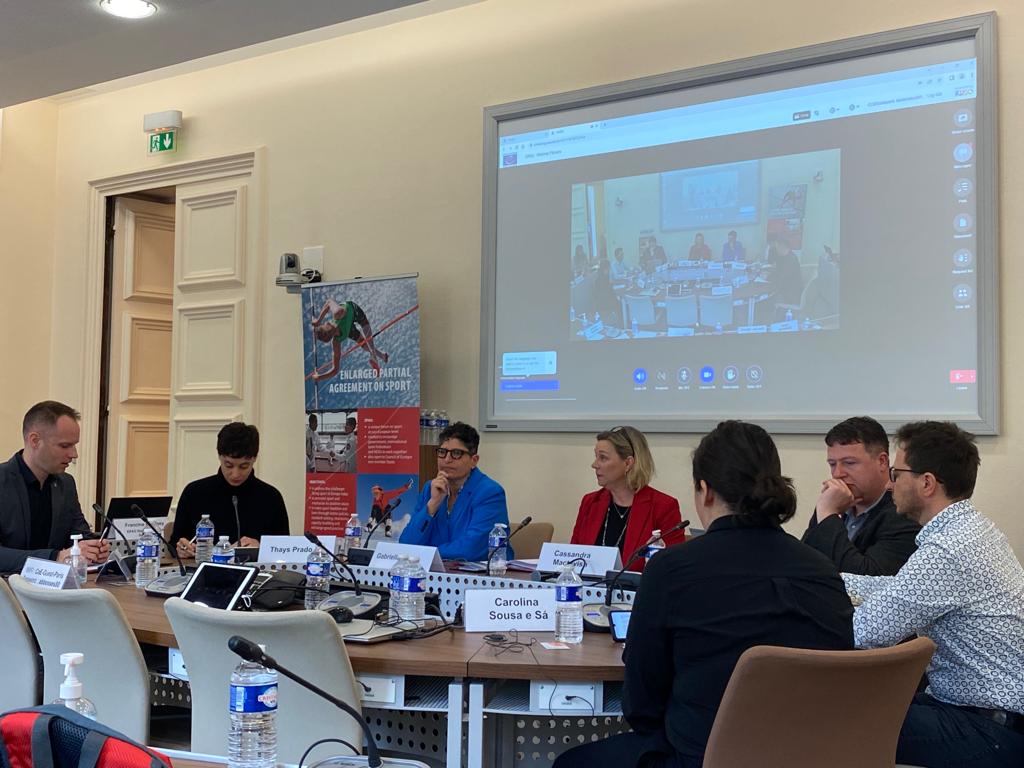
Conny-Hendrik Schälicke, a co-founder and Chair of the Seitenwechsel Sports Club in Berlin, presented their organisation, which focuses on women, girls, lesbian, trans, and intersex people, and how their charter and toolkit for gender diversity in sports provides a framework to create a safer space for all, but especially trans and inter persons in sports. The final speaker on this panel was Carolina Sousa E Sà, participant of the Healthy Lifestyle For All Youth Ideas Labs Initiative and a Senior Project Officer of LEAP Sports Scotland, speaking from a youth perspective and reflecting on implementing activities on local level, as well as challenges in addressing trans inclusion in sports.

The public part of the webinar was wrapped up by Francine Hetherington Raveney, EPAS Deputy Executive Secretary, highlighting the importance of protecting and promoting human rights of trans and intersex athletes, thanking the excellent panel of speakers and moderators, as well as all attendees, and the EPAS Consultative Committee for supporting the organisation of the event.

In the afternoon, invited participants and experts took part in a consultation workshop, addressing the biggest challenges and opportunities in protection and promotion of human rights of transgender and intersex athletes. The results will be used in preparation of the educational toolkit, to be published by the Council of Europe within a year.
For more information on the topic, please see www.coe.int/en/web/sport/diversity-conference
